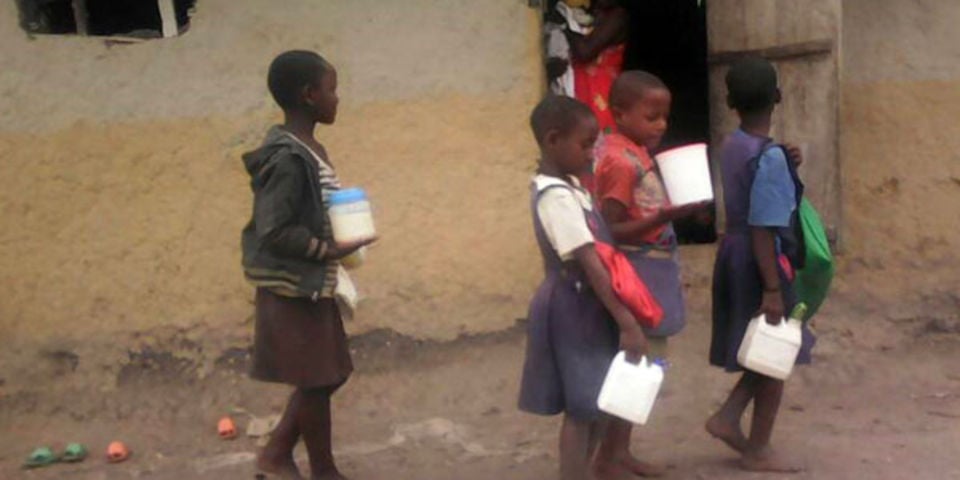School milk programme will accelerate incomes

Kenneth Otikal
What you need to know:
The benefits of the SMP will be felt across the country and parents who form dairy farming households will benefit from a ripple effect of the enhanced market
Recently, the Ministry of Education announced plans to pilot the school milk programme (SMP) in 17 schools and then roll it out to all schools countrywide at the beginning of the next academic year. The SMP involves compulsory provision of milk to learners as part of their meals.
This has received mixed reactions from parents, teachers, and other stakeholders questioning its relevance, rationale, and appropriateness, and further making claims that it is for a market for specific farmers. I am writing to dispel most of these reactions and provide more insight.
The school milk programme provides an opportunity for a nutritious meal for school-going children while reinforcing GDP growth and household income. Promoting milk consumption at school also reduces reliance on carbonated drinks while strengthening high nutrient intake for children. Adopting an early lifestyle of daily milk consumption will not only guarantee the future dairy industry by sustaining consumption but create jobs.
On the other hand, the SMP will account for 25 percent of marketed milk thus providing a steady income for dairy farmers. Milk production will skyrocket to six billion liters annually to meet the demand created thus propelling Agriculture GDP to more than nine percent of total GDP. The benefits of the SMP will be felt across the country and parents who form dairy farming households will benefit from a ripple effect of the enhanced market.
Secondly, the SMP can be implemented under free, subsidized, and private schemes. The free scheme includes the provision of free milk to schools by the central government, local government, or the community; while the subsidy entails parents providing milk at the subsidized rates for example 50 percent of the price of milk with government authorities providing the other 50 percent.
Under the private scheme; the school through the PTA provides the total costs without government involvement. The appropriateness and choice for each scheme are dependent on the school ownership, location of milk source, and the dairy farmers’ organization among others.
According to the DDA/SNV pilot of the SMP, the demand and supply-driven models were recommended for urban and rural schools respectively. The demand-driven milk programme i.e. the parent-led model was successful in urban schools where processors (predominantly urban) provide a pint of milk to schools while in the supply model appropriate to rural schools, milk is produced from local dairy farmer groups based at the parish level. Raw milk is delivered to schools and prepared daily for children to take at break time. Both models and schemes have been tested and require relevant stakeholders to implement.
Lastly, the Dairy Development Authority, a government agency, has put in place arrangements to enable the roll-out and support of the programme from the supply side of the model. According to its annual performance reports, most critical for the success of the programme is organising dairy farmer groups and strengthening dairy cooperation in clean milk production and bulking. These farmer institutions are capable of supplying milk to all schools across the country. Parents are part of these cooperatives and will be producing and marketing milk for their children through the programme.
In line with the Parish Development Model; farmers’ organisations have reached the parish level in most milk sheds. The SMP as one of the DDA priorities in its strategic plan aligned to the National Development Plan III seeks to improve domestic milk per capita consumption and contribute to population well-being. DDA performance reports also indicate that it has supported milk collection and bulking cold chain infrastructure countrywide through the provision and installation of coolers, revitalization of milk collection centers, and provision of milk handling equipment. On the regulatory side; DDA through its routine dairy inspections and surveillance activities in its plans will ensure milk provided is clean and safe for consumption at schools.
Stakeholders need to note that raw milk cannot move from the country’s southwestern part or Central part to the Northern, Eastern, and North Eastern. Thus, the SMP provides an opportunity to join the thriving and lucrative dairy industry along its long value chain as a milk farmer, bulk trader, transporter, and also as a processor, etc.
Mr Kenneth Otikal is a Statistician/Economist, Population Scientist and M&E Specialist.




